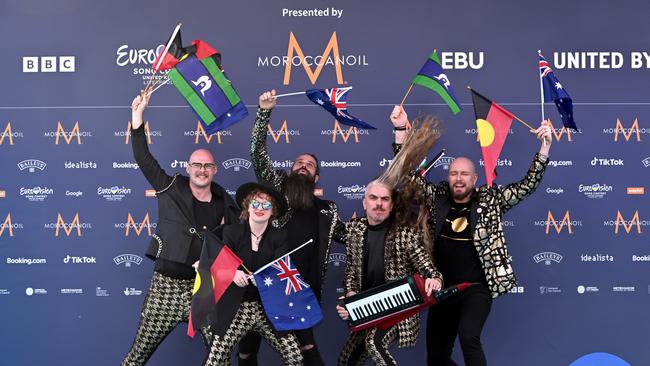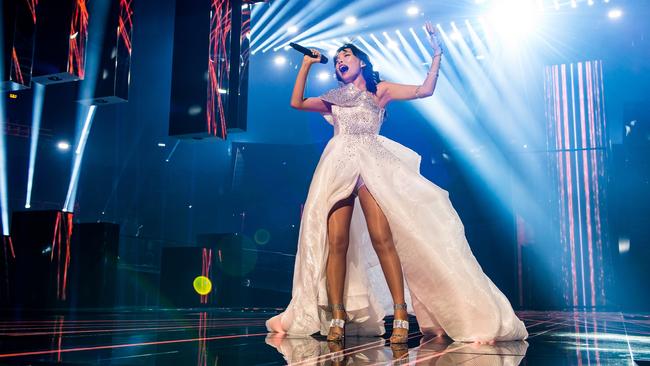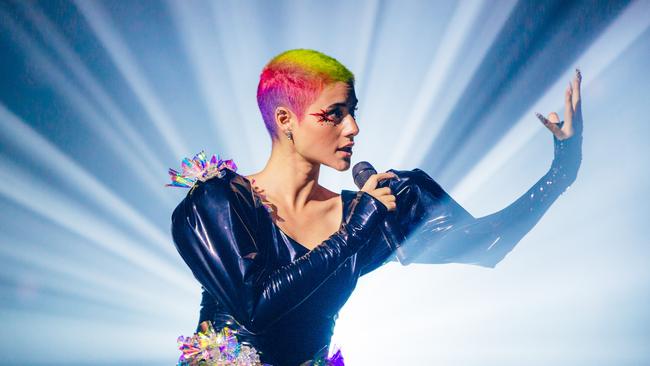Perth group make their Eurovision grand entrance
The keytar-wielding quintet, Voyager, will take their song ‘Promise’ to the international music competition as the first group to represent Australia.

Perth’s synth metal band Voyager has made a grand entrance on the Eurovision purple carpet at this year’s annual song contest’s glitzy opening ceremony.
The contest, set to culminate in the grand final this weekend, is hosted by Britain for the first time in 25 years at the Liverpool Arena. Ukraine, which won last year’s competition, was unable to stage the event due to the Russian invasion.
The keytar-wielding quintet, Voyager, will take its song Promise to the international music competition as the first group to represent Australia.
It will appear in the second semi-final on Friday alongside other countries such as Albania, Armenia, Cyprus, Romania, Austria, Denmark, Lithuania, San Marino, Belgium, Slovenia, Iceland, Georgia, Greece, Poland, and Estonia.
The top 10 countries from the semi-finals will advance to the grand final on Saturday night (Sunday AEST).
Although Voyager has submitted a song every year since Australia’s debut in the competition in 2015, the band has never made it to the final. It came close in 2020 when it was short-listed, and in 2021 its song Dreamer led in the public vote. However, ultimately it placed second to Sheldon Riley’s Not the Same.
“As a long-time Eurovision fan, this is the pinnacle – Voyager gets to play the greatest show on Earth,” Voyager’s vocalist, Danny Estrin, said.

Australia has participated in the Eurovision Song Contest for the past eight years, featuring a consistent line-up of solo performers serenading the international stage, including Guy Sebastian, Jessica Mauboy, and the 2023 Archibald Prize-winning sitter Montaigne.
Despite the country’s strong representation, the Eurovision trophy has remained frustratingly elusive. While there have been near misses, such as Dami Im’s second-place out of 42 countries in 2016, Australia has yet to bring home the coveted prize.

Sending a synth-metal band is a bold shift for organisers.
“Sometimes Eurovision is silly in a serious way, and sometimes people go, wow, that’s incredible, we’ve never seen that,” creative director Paul Clarke explained. “And I think a lot of Eurovision success is about, wow, we’ve never seen that.”




To join the conversation, please log in. Don't have an account? Register
Join the conversation, you are commenting as Logout